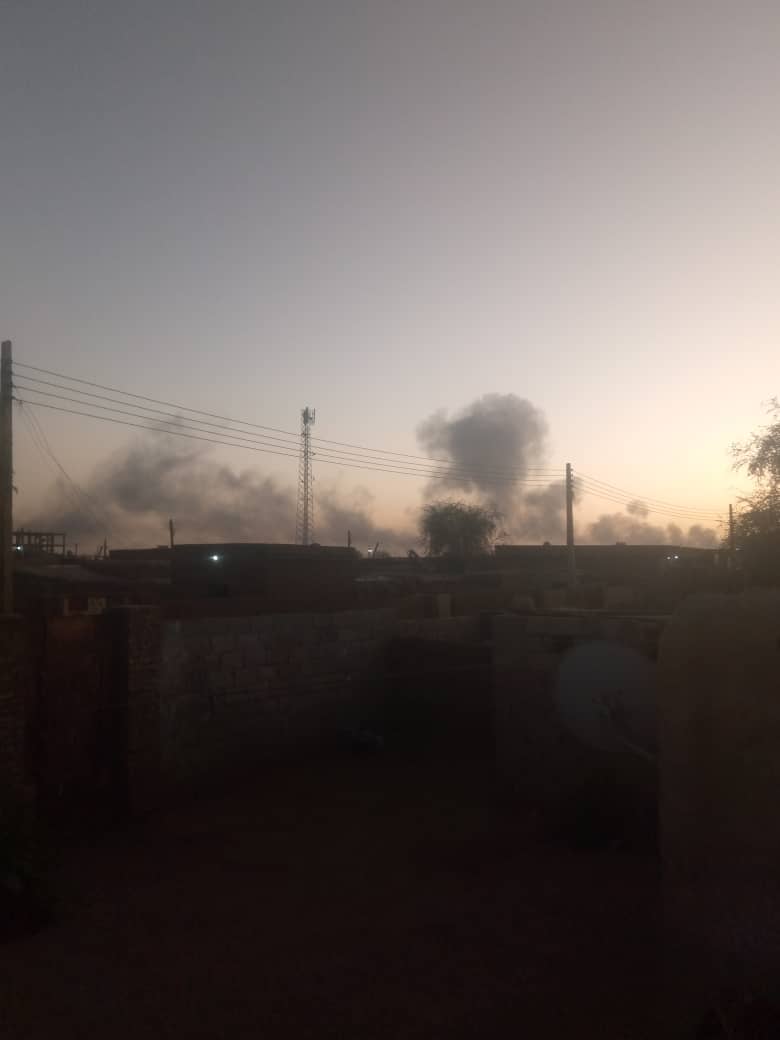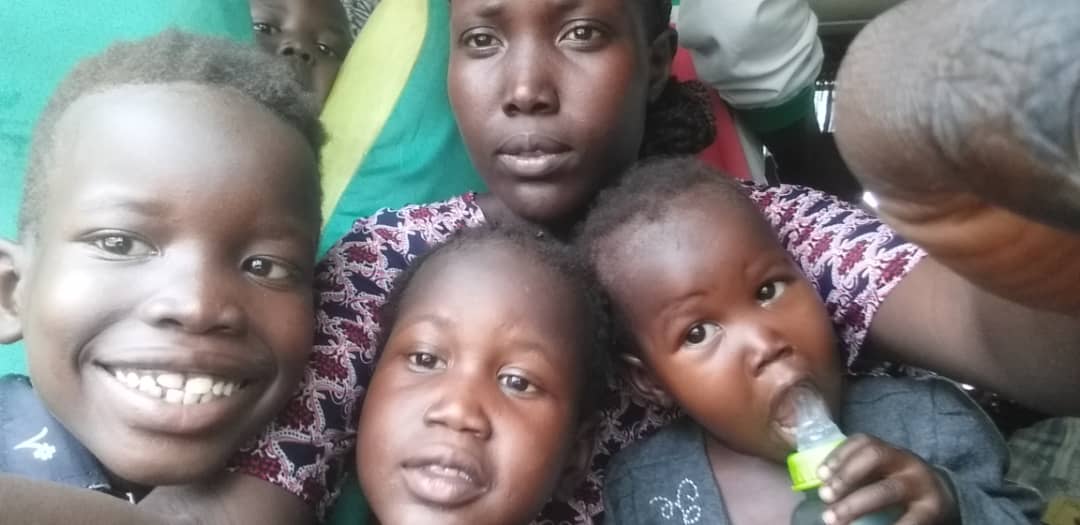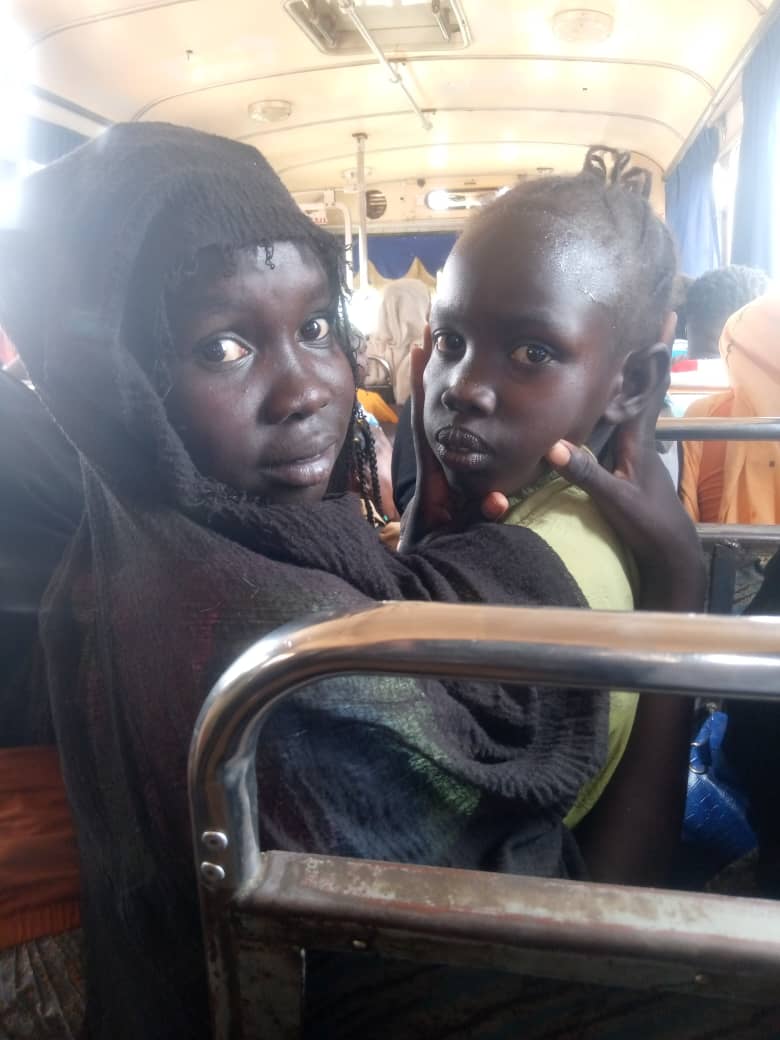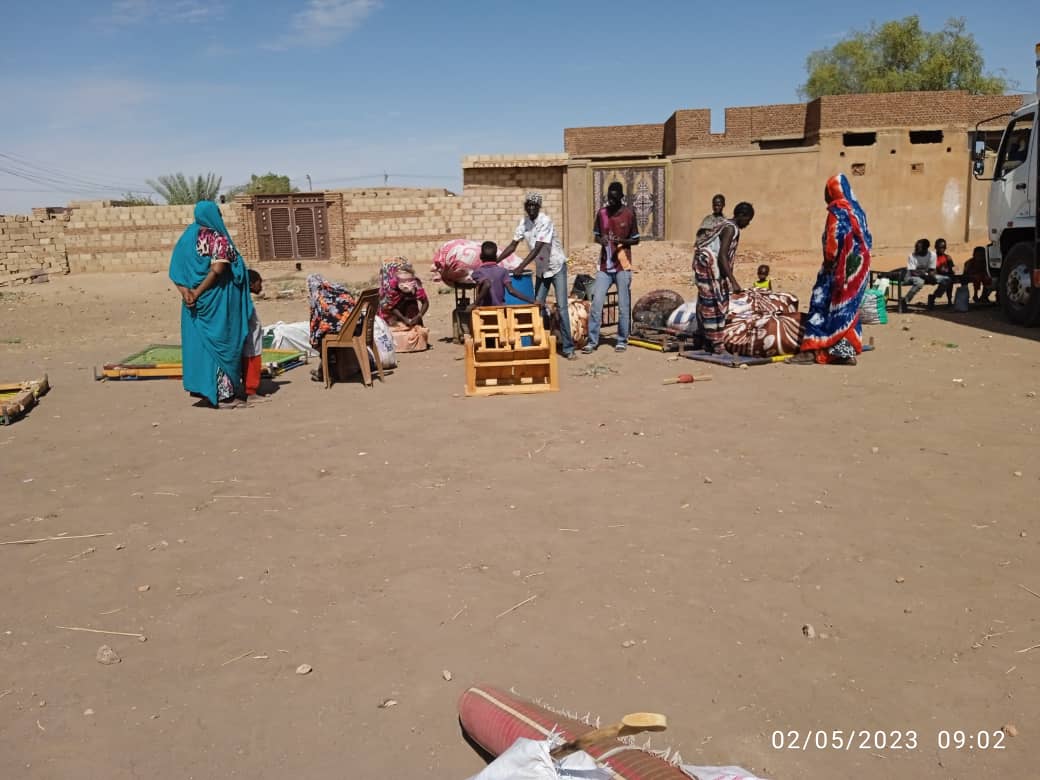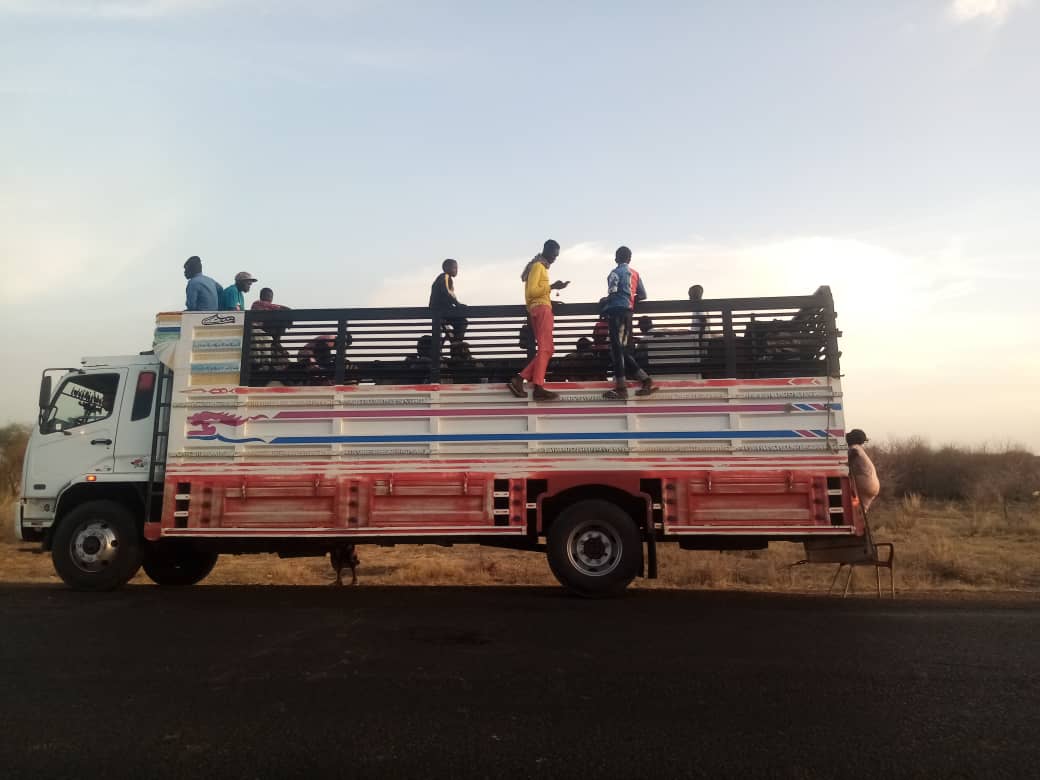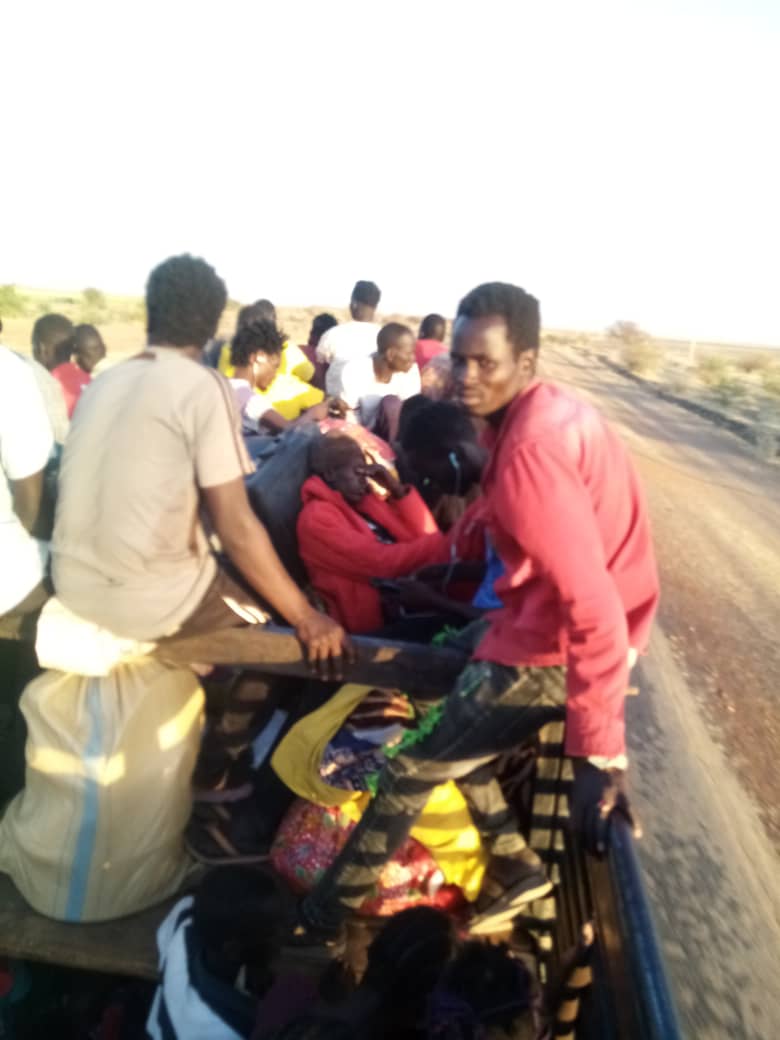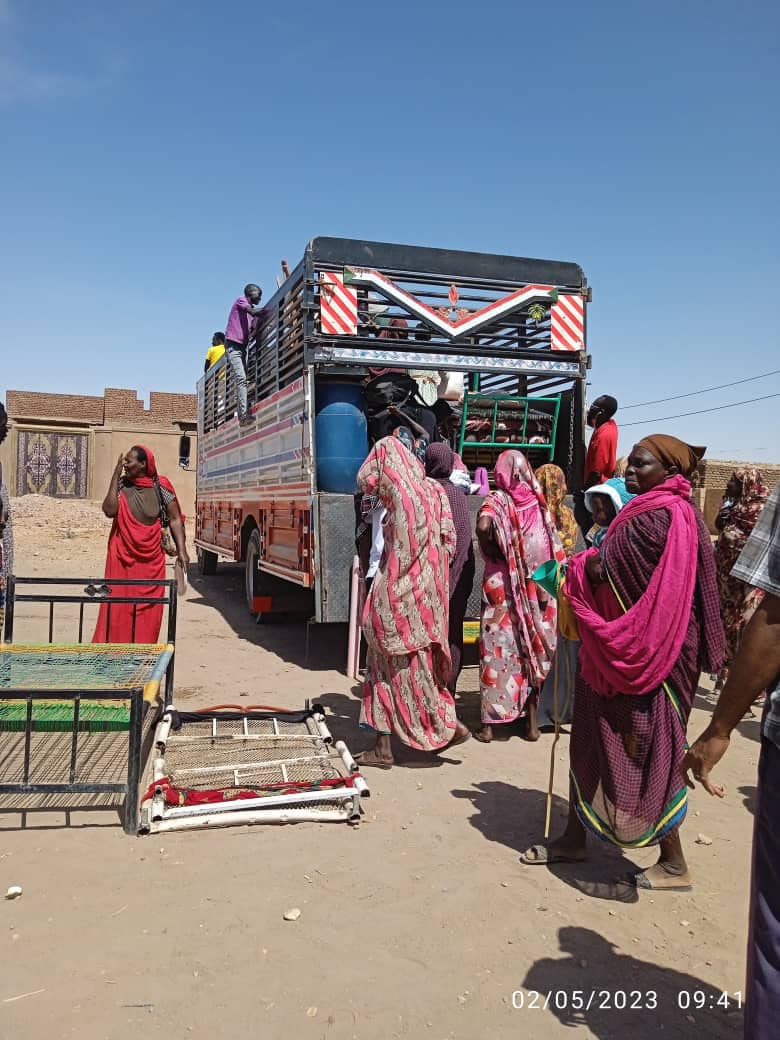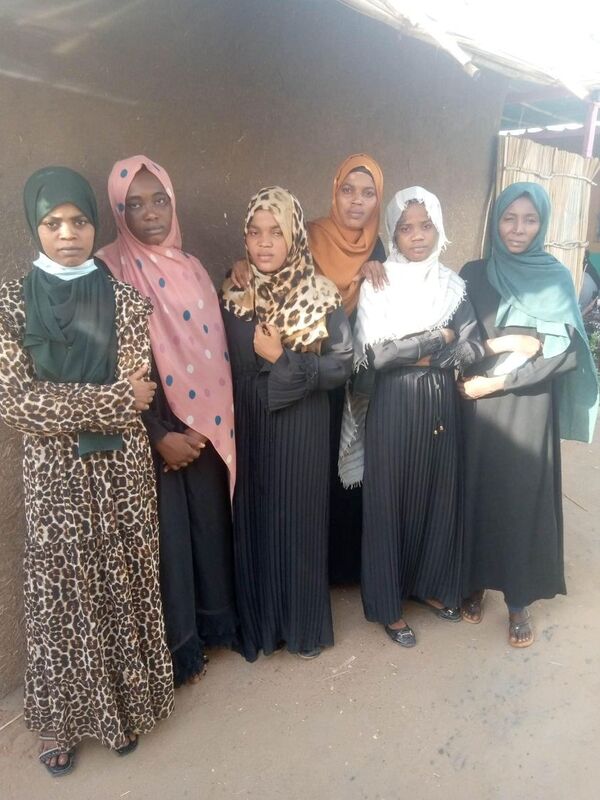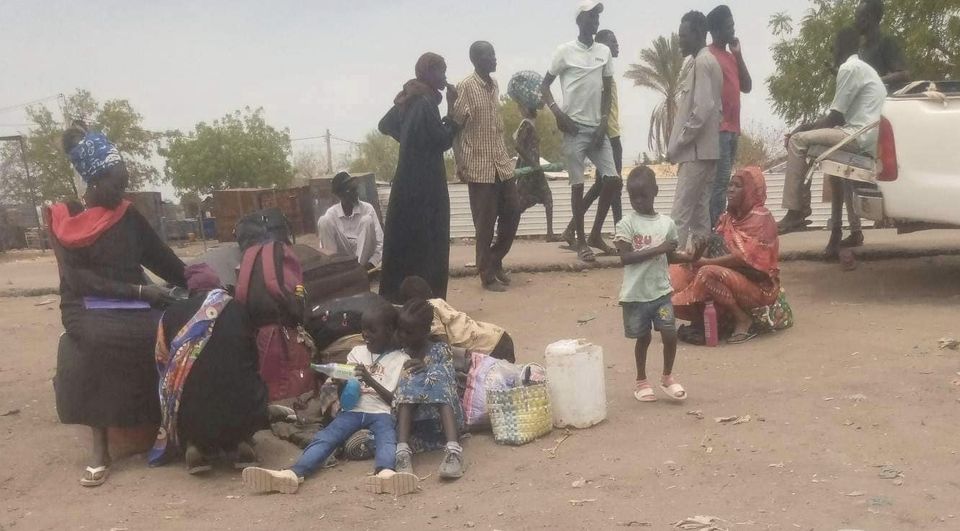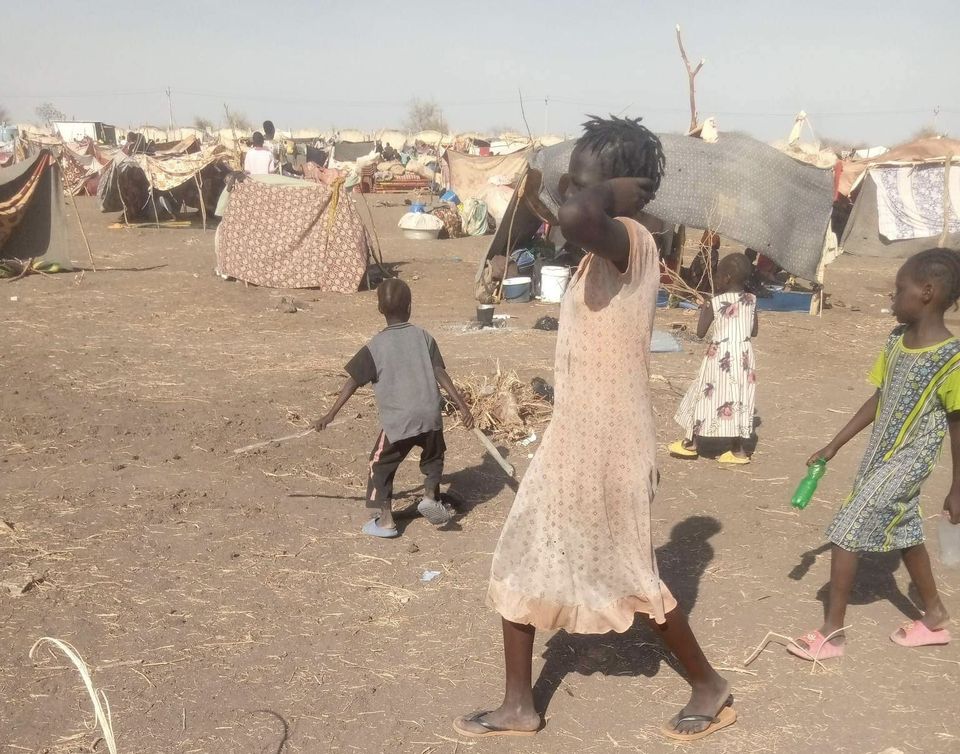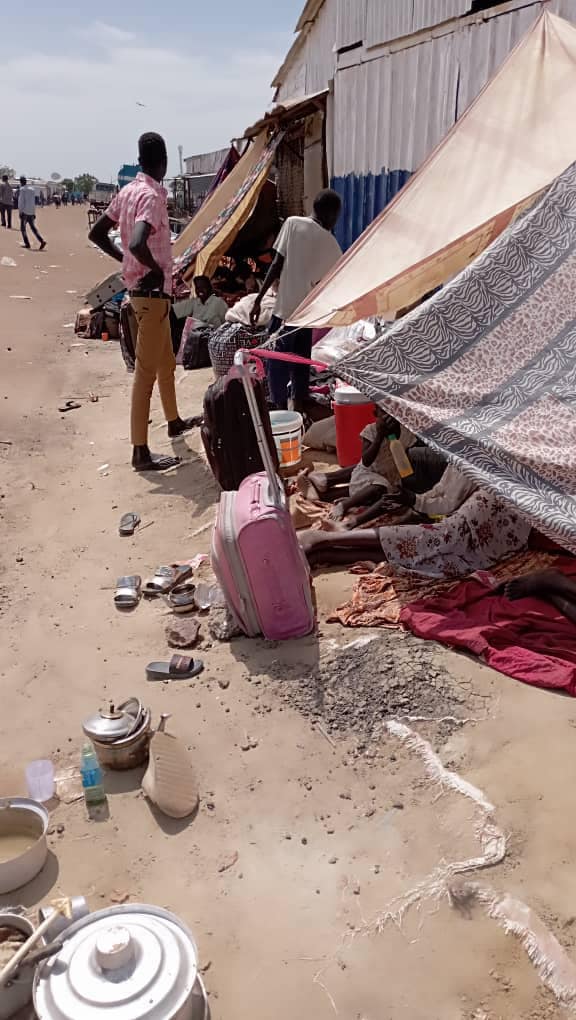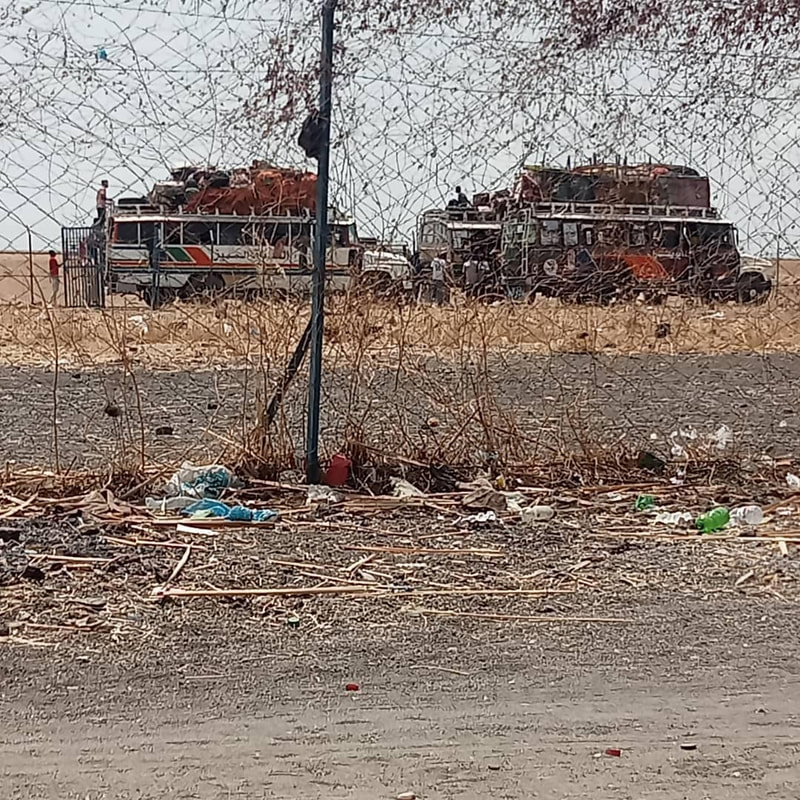|
What is going on in Sudanhe fighting in Khartoum erupted between the Sudan army (led by General Abdel Fattah al-Burhan) and a powerful militia called the Rapid Support Forces (RSF) (led by Mohamed Hamdan Dagalo, AKA Hemedti). The RSF stemmed from the Janjaweed militia which were responsible for war crimes committed by them while taking down the civil uprising in the Darfur region in the early 2000s.
These two forces were allies in a coup which they orchestrated in 2021 after the 2019 removal of the Sudanese ruler Omar Al-Bashir. Since then Al-Burhan has been the de-facto ruler of Sudan and Hemedti his number two. The country was supposedly in a transition to democracy, however the rival party disagreed on the duration of the transition - whereas the army wanted the transition to occur in two years, the RSF demanded that it lasts 10 years. Al-Burhan realized that the RSF had been rapidly growing and accumulating power and wealth, and so the army demanded that the RSF be integrated into the army, to which Hemedti refused. The army is a larger force with 300,000 soldiers and an air force, but the RSF has also grown to about 100,000 soldiers and has anti-aircraft missiles. The fighting occurs mostly in the capital Khartoum, but fights are breaking out in other regions of the country as well. Much of the fighting and bombardments are being held amidst civilian population. Hundreds of people had already been killed and thousands injured, many of them children. It is estimated that over 100,000 people fleeing from Sudan had already crossed its borders. The number of internally displaced people is still unknown. For further reading: A simple guide to Sudan by Aljazeera An interesting article by the Guardian A rolling situation report by the UN office of coordination of humanitarian affairs (OCHA) UNHCR report about the refugee crisis created by the war in Sudan |
|
The Rescue Mission from Sudan
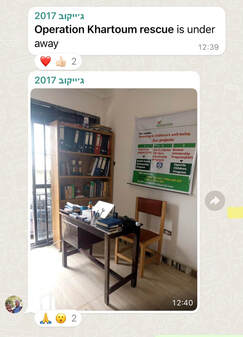
Albeit being a small organization, Become has great assets enabling us to effectively assist the evacuation of civilians from Khartoum. Our assets include our East Africa program director - Mr. Jacob Berry - himself from Darfur and formerly a refugee in Israel, who is fluent in many languages and has both the management and personal skills to conduct such project; our vast network with members of the deportee community worldwide; our deep connections with a few of our Come True students who moved to Khartoum with their families during the Covid-19 crisis in Uganda and have failed since then to find the means to return to school in Uganda, as well as with Sudanese families who were refugees in Israel and have been living in Khartoum following their deportation; our past experience, especially with evacuation from the South Sudan war and our loyal circle of supporters and donors who are quick to respond and ready to assist in moments of crisis.
Once shooting started in Khartoum, we were immediately contacted by children who know us from Come True or from their time in Israel. Within a couple of days we already mapped the group of our students and contacts from Israel in Khartoum, and had started a fundraising campaign to fund the evacuation of what we then thought were 7 families. That very same evening we got from one of the girls we know from Israel a video of the shooting that she took from her window. A girl sent us a photo of her friend’s house which was hit by a bomb.
We were in ongoing communication with children and families in Khartoum. The kids told us of the escalating situation - shortage of food, no water. One girl shared her concern for her two cats.
On April 21 we had already managed to raise some money, to get information about ways of transit out of Khartoum and to gather the families requesting our assistance in a WhatsApp group managed by Jacob. The operation was formally on its way, as Jacob assured us on our common chat.
Our main challenges were finding means of transport to drive our people to the South Sudan border; finding ways for the families to get to the vehicles, as the fighting practically reached the homes of the families we were helping and they did not have a safe way to leave home; prices were soaring and the money we were sending the families for some food and water while they wait for their evacuation was not enough; network shutdowns - both internet and cellular networks - made communication with the families very hard; and the situation in the streets was rapidly detiriorating.
In addition, we were getting reports of the RSF releasing from prison thousands of prisoners, both criminal and political, among them former ruler Al-Bashir and his government members.
Time after time we encountered problems for the families we were trying to evacuate to simply leave town to reach the vehicles we paid to drive them to the border. We couldn’t find smaller vehicles that could collect people from their homes, and simply walking to the meeting point did not only mean that they would have to leave almost all of their few belongings behind, but also that they would put themselves in great danger in the streets of Khartoum. Parts of the city were heavily bombed, including the place where the buses were waiting. We feared for the lives of the people with whom we were in touch.
On the evening of April 24 we managed to get the first group moving from Khartoum toward the South Sudan border. The following day we already managed to get a second group of families on its way.
All this time we were being contacted by more and more people begging for our help - some of whom we personally know, some are family members or friends of people from the community that we’re helping and some are complete strangers, who heard about us and were desperate for assistance. Our operation was getting bigger and bigger.
We contacted the South Sudanese embassy in Israel, and found out that the South Sudan government was about to organize flights to Juba, the capital city of South Sudan, from some of the towns bordering Sudan, to help with the evacuation of the entering refugees and ease the humanitarian pressure already building up at the border. We were promised that these flights will be free of charge for both South Sudanese citizens and Sudanese and other citizens fleeing from the war in Sudan.
On April 26 the first group of our evacuees crossed the border into South Sudan. Throughout their journey, they received advice and support which saved them from falling victims to robbers, human traffickers and other horrible mishaps which were getting more and more common in these areas. And yet, the trip to the border is extremely dangerous, and we practically hold our breath until each group reaches safety in South Sudan.
Meanwhile, we were getting worrying reports from people still in Khartoum about the situation there, and realized that we must quicken up the pace of evacuations.
And in parallel, the people waiting for the government flights in South Sudan need a place to stay, need some food and water, and the prices are skyrocketing as more and more refugees are crossing the border.
All the while we kept reporting about the evacuation efforts and asking for support. Any support we got meant that we could extend the circle of people we’re helping and tend to the safety of those already evacuated. We were encouraged by the donations received from our supporters, but also by the sheer humanity of our community in Sudan, like this wonderful Sudanese girl, who, while waiting to leave her home towards the Egyptian border for safety, chose to volunteer at a local hospital, helping the scarce medical teams that stayed behind and trying to help the many wounded, too many of them children.
All the while the desperate requests for our help are piling up, whether from within our community or outside of it. We’re evacuating as many people as our limited resources allow us, sometimes practically saving their lives.
Some of our Sudanese friends refuse to leave. They are tired of seeking refuge in other places, tired of the journey that their lives forced them to make.
At least two of the families we’re evacuating lost family members in Khartoum in recent days - one was killed due to the fighting and the other was murdered in a robbery at her home.
Most of the time we are getting desperate messages. But from time to time we have a moment of relief. Like this message and video from the girl that took good care of her cats and also managed to take them with her when we helped her family leave their home in Khartoum in hope for a safer place within Sudan.
Other moments of joy and pride we experience when we get help on the ground from community members, and particularly from our students and graduates of the Come True project. In the last few days we were approached by a South Sudanese friend whom we know from his days in Israel, who was at the South Sudanese towns near the Sudan border, and called us to offer his help with visiting the families that we evacuated and are waiting there to continue their trip to Juba, and also with trying to help with the government flights out of there.
One of our Come True graduates who was evacuated by us with his families, proved as a valuable source of information and help, was highly efficient in making any inquiry we requested on ground, and also found a way to help a group of women, unrelated to our community, to find shelter and a place to stay at the border.
We managed to find a reliable truck driver, who already helped us evacuate two rounds of people from Khartoum, each round comprising of approximately 80 people, and to bring them safely across the border into South Sudan. Overall, we evacuated over 200 people from Khartoum and are getting ready for another round of the truck.
The people on the South Sudanese side of the border are suffering from harsh conditions, including shortage of food and water, and crowdedness which might lead to the spreading of diseases. This humanitarian crisis is developing while the South Sudan government is renovating the local airport to allow for a series of flights to take off from there.
Once shooting started in Khartoum, we were immediately contacted by children who know us from Come True or from their time in Israel. Within a couple of days we already mapped the group of our students and contacts from Israel in Khartoum, and had started a fundraising campaign to fund the evacuation of what we then thought were 7 families. That very same evening we got from one of the girls we know from Israel a video of the shooting that she took from her window. A girl sent us a photo of her friend’s house which was hit by a bomb.
We were in ongoing communication with children and families in Khartoum. The kids told us of the escalating situation - shortage of food, no water. One girl shared her concern for her two cats.
On April 21 we had already managed to raise some money, to get information about ways of transit out of Khartoum and to gather the families requesting our assistance in a WhatsApp group managed by Jacob. The operation was formally on its way, as Jacob assured us on our common chat.
Our main challenges were finding means of transport to drive our people to the South Sudan border; finding ways for the families to get to the vehicles, as the fighting practically reached the homes of the families we were helping and they did not have a safe way to leave home; prices were soaring and the money we were sending the families for some food and water while they wait for their evacuation was not enough; network shutdowns - both internet and cellular networks - made communication with the families very hard; and the situation in the streets was rapidly detiriorating.
In addition, we were getting reports of the RSF releasing from prison thousands of prisoners, both criminal and political, among them former ruler Al-Bashir and his government members.
Time after time we encountered problems for the families we were trying to evacuate to simply leave town to reach the vehicles we paid to drive them to the border. We couldn’t find smaller vehicles that could collect people from their homes, and simply walking to the meeting point did not only mean that they would have to leave almost all of their few belongings behind, but also that they would put themselves in great danger in the streets of Khartoum. Parts of the city were heavily bombed, including the place where the buses were waiting. We feared for the lives of the people with whom we were in touch.
On the evening of April 24 we managed to get the first group moving from Khartoum toward the South Sudan border. The following day we already managed to get a second group of families on its way.
All this time we were being contacted by more and more people begging for our help - some of whom we personally know, some are family members or friends of people from the community that we’re helping and some are complete strangers, who heard about us and were desperate for assistance. Our operation was getting bigger and bigger.
We contacted the South Sudanese embassy in Israel, and found out that the South Sudan government was about to organize flights to Juba, the capital city of South Sudan, from some of the towns bordering Sudan, to help with the evacuation of the entering refugees and ease the humanitarian pressure already building up at the border. We were promised that these flights will be free of charge for both South Sudanese citizens and Sudanese and other citizens fleeing from the war in Sudan.
On April 26 the first group of our evacuees crossed the border into South Sudan. Throughout their journey, they received advice and support which saved them from falling victims to robbers, human traffickers and other horrible mishaps which were getting more and more common in these areas. And yet, the trip to the border is extremely dangerous, and we practically hold our breath until each group reaches safety in South Sudan.
Meanwhile, we were getting worrying reports from people still in Khartoum about the situation there, and realized that we must quicken up the pace of evacuations.
And in parallel, the people waiting for the government flights in South Sudan need a place to stay, need some food and water, and the prices are skyrocketing as more and more refugees are crossing the border.
All the while we kept reporting about the evacuation efforts and asking for support. Any support we got meant that we could extend the circle of people we’re helping and tend to the safety of those already evacuated. We were encouraged by the donations received from our supporters, but also by the sheer humanity of our community in Sudan, like this wonderful Sudanese girl, who, while waiting to leave her home towards the Egyptian border for safety, chose to volunteer at a local hospital, helping the scarce medical teams that stayed behind and trying to help the many wounded, too many of them children.
All the while the desperate requests for our help are piling up, whether from within our community or outside of it. We’re evacuating as many people as our limited resources allow us, sometimes practically saving their lives.
Some of our Sudanese friends refuse to leave. They are tired of seeking refuge in other places, tired of the journey that their lives forced them to make.
At least two of the families we’re evacuating lost family members in Khartoum in recent days - one was killed due to the fighting and the other was murdered in a robbery at her home.
Most of the time we are getting desperate messages. But from time to time we have a moment of relief. Like this message and video from the girl that took good care of her cats and also managed to take them with her when we helped her family leave their home in Khartoum in hope for a safer place within Sudan.
Other moments of joy and pride we experience when we get help on the ground from community members, and particularly from our students and graduates of the Come True project. In the last few days we were approached by a South Sudanese friend whom we know from his days in Israel, who was at the South Sudanese towns near the Sudan border, and called us to offer his help with visiting the families that we evacuated and are waiting there to continue their trip to Juba, and also with trying to help with the government flights out of there.
One of our Come True graduates who was evacuated by us with his families, proved as a valuable source of information and help, was highly efficient in making any inquiry we requested on ground, and also found a way to help a group of women, unrelated to our community, to find shelter and a place to stay at the border.
We managed to find a reliable truck driver, who already helped us evacuate two rounds of people from Khartoum, each round comprising of approximately 80 people, and to bring them safely across the border into South Sudan. Overall, we evacuated over 200 people from Khartoum and are getting ready for another round of the truck.
The people on the South Sudanese side of the border are suffering from harsh conditions, including shortage of food and water, and crowdedness which might lead to the spreading of diseases. This humanitarian crisis is developing while the South Sudan government is renovating the local airport to allow for a series of flights to take off from there.
What's Going to Happen Next?
It is still very hard to answer this question. We do not know how many people will ask for our help and how many of them we will be able to assist.
Our goal is different for different types of families -
For Sudanese families who wish to remain in Sudan we hope to help reach a safe place within Sudan and assist them in getting settled for a while until the situation clears a bit and they could make more informed decisions about their future.
For South Sudanese families who are not a part of the community supported by us, we would like to help until crossing the border into South Sudan.
For South Sudanese families who are a part of the South Sudanese refugee community that was deported from Israel, we hope to be able to assist them to reach Uganda and settle there as refugees, and for their children to join the Come True project as students for the forthcoming years.
For this last group we will need, in addition to the funds required for the evacuation from Khartoum, more funds for the trip to Juba (hopefully this will be done through government flights, but we have to prepare for a chance that this will not be possible), and possibly from Juba to Kampala. For their children we will need scholarships which will allow them to join school in Uganda and study under the Come True project at least until they successfully graduate high school.
Our goal is different for different types of families -
For Sudanese families who wish to remain in Sudan we hope to help reach a safe place within Sudan and assist them in getting settled for a while until the situation clears a bit and they could make more informed decisions about their future.
For South Sudanese families who are not a part of the community supported by us, we would like to help until crossing the border into South Sudan.
For South Sudanese families who are a part of the South Sudanese refugee community that was deported from Israel, we hope to be able to assist them to reach Uganda and settle there as refugees, and for their children to join the Come True project as students for the forthcoming years.
For this last group we will need, in addition to the funds required for the evacuation from Khartoum, more funds for the trip to Juba (hopefully this will be done through government flights, but we have to prepare for a chance that this will not be possible), and possibly from Juba to Kampala. For their children we will need scholarships which will allow them to join school in Uganda and study under the Come True project at least until they successfully graduate high school.

